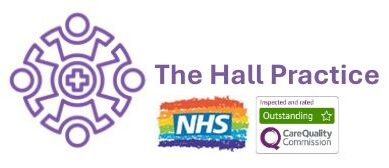Vaccinations
Find out about vaccinations for babies, children and adults, including why they’re important and hot to get them.
Stop Smoking
Quitting smoking is one of the best things you can do for your health, reducing your risk of serious illnesses and improving your quality of life.
Get Fit For Free
Regular exercise helps improve your health, boost your mood, and reduce the risk of many illnesses. Explore our free local resources to help you get active and stay fit.
Birth To Five
Your NHS guide to parenting in the early years
The Birth to Five guide is for parents and carers of children from newborns to pre-school age. It offers over 150 pages of trusted NHS information, videos, and tools to support you through parenting.
The guide covers everything from calming a crying baby to getting your child ready for school. It also helps you recognise serious illness, handle accidents, and track your child’s development. Plus, it includes advice on your own health, rights, benefits, and NHS services after having a baby.
Mental Health
About one in four people will experience mental health problems at some point in their lives. If you’re worried about your own mental health or someone else’s, there are many support options available to help—find out more through the links on our website.
Contraception
Contraception is free for most people in the UK, with many methods available to help you choose what suits you best. While contraception prevents pregnancy, only condoms also protect against sexually transmitted infections (STIs), so using condoms alongside other methods is important for your and your partner’s health.
If you want to check your contraception options or find out more, please visit our contraception support page for helpful information and links to local services. Some contraceptives may incur a charge.
Winter Health – Beat The Blues
Winter depression, also called seasonal affective disorder (SAD), affects about 1 in 15 people in the UK between September and April. Many more (around 17%) experience milder symptoms known as the winter blues. Common signs include feeling low, tired, sleeping badly, overeating, irritability, and wanting to be alone.
Here are 10 tips to help manage symptoms:
- Stay active—daily walks, especially at midday, can help.
- Spend time outside in natural daylight whenever possible.
- Keep warm—cold can make symptoms worse. Aim to keep your home between 18°C and 21°C.
- Eat a healthy, balanced diet with plenty of fruit and vegetables.
- Consider light therapy using a light box or dawn simulator (not available on the NHS).
- Take up a new hobby to keep your mind busy.
- Stay connected with friends and family.
- Talk to a professional—counselling or cognitive behavioural therapy (CBT) can help.
- Join a support group, such as the Seasonal Affective Disorder Association (SADA).
- Seek medical help if your symptoms are severe or affect your daily life.
Summer Health
Barbecue Food Safety
Cooking food properly at a barbecue is important to avoid food poisoning. Undercooked meat and germs spreading from raw meat to ready-to-eat food are the main risks. Always make sure your barbecue coals are hot (glowing red with a grey surface) before cooking. Thaw frozen meat fully before cooking, turn meat regularly, and check it is piping hot all the way through, with no pink inside and clear juices. Keep raw and cooked foods separate, wash your hands, and use different utensils to avoid spreading germs. Remember to keep food cool and don’t leave it out in the sun for more than two hours.
Hay Fever
Around 20% of people in the UK have hay fever, caused mainly by tree and grass pollen. Pollen levels are highest on warm, sunny days and between 4pm and 7pm or early morning. To reduce symptoms, avoid mowing the lawn if grass triggers your hay fever, keep windows closed when sleeping or driving, wash your hair regularly, damp dust your home, and vacuum often. You can also try smearing Vaseline inside your nostrils to block pollen. If your usual hay fever treatment isn’t working, speak to your GP or pharmacist about alternatives.
Sun Safety
Protect your skin from sunburn and heat exhaustion by using sunscreen, wearing a hat and sunglasses, and staying in the shade during the hottest parts of the day. Keep children especially protected.
Insect Stings
Most insect stings from bees or wasps cause pain but are harmless. However, some people can have a serious allergic reaction. If you or a child are stung, watch for signs of a severe reaction like difficulty breathing, swelling of the face or throat, or dizziness, and seek medical help immediately if these occur.
Following these simple steps will help you enjoy a safe and healthy summer.
Travel Vaccines
Travel vaccines help protect you from illnesses you might catch abroad. The vaccines you need depend on where you’re going, your health, and what you’ll be doing. Some travel vaccines are free on the NHS, while others may have a cost. It’s best to book your travel health appointment at least 6 to 8 weeks before you go to make sure you have enough time to get all the vaccines you need.
For more information and to check which vaccines are right for you, please visit our travel vaccination support page.
Carers
Caring for someone can be rewarding but also challenging. Support and advice are available to help carers look after their own health and wellbeing while providing care. Whether you are a family member, friend, or neighbour, there are services and resources to support you.
For more information and guidance, please visit our carers’ support page.
